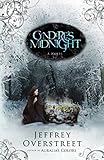
It has been some time since the fall of House Abascar. Its survivors are now divided—some have stayed within the relative security of House Bel Amica’s seaside walls, others have been lost to the Cent Regus Core, others journey without their missing king through the haunted forests hoping to arrive at Inius Throan, the sacred place of Cal-Raven’s visions and foundation of New Abascar. The ale boy is caught in an underground river, himself searching for more survivors he can rescue and for Auralia herself. What he finds is not what he expects and his road has not yet ended.
Meanwhile the seers, having lost some of their power, still conspire to unleash something more deadly than any of the other curses of the Expanse. They count on their last ditch effort to throw everything into chaos. But heroes emerge from the ash of destruction to bring hope to the yet hopeless. The question is how?
Cal-Raven, who often questions himself, continues to grow as a character into his kingly role. Romances flourish and are dashed, lives are snuffed out and brought back, victories are won and defeats are suffered. It’s all quite overwhelming and in a word, beautiful.
And what of Auralia, Jordam, Cyndere, Partayn, Ryllion, Tabor-Jan, Emeriene, Krawg, Warney, Scharr Ben Fray and the literal host of other characters that Overstreet has introduced in the series? All of them show up, one way or another, and their fates are revealed as well.
The Ale Boy’s Feast seamlessly connects the saga of the Expanse with the first three books, continuing the ethereal poem/story in Overstreet’s signature style. I like to consider myself as being widely read, but even so, I’ve never read more gorgeous language synthesized into a fantastical, epic tale. Every name, place, animal, and plant evoke detailed imagery for the reader to savor.
As for the plot, well, it doesn’t go where one thinks it might. Which is quite all right in my estimation, even though it all ended with a few more questions than I cared to be left with. But we do find out lots of things, like the origins of Auralia and the ale boy, more about the Keeper, and the fate of some characters who fared better (or worse) than we may have surmised.
There is much food for thought within these pages, more than I could begin to tell in this short piece. I will share, however, two lines of dialog that I had to mark for later, which are indicative of a major theme and struck me as profound. These words from a particular conversation, one which occurs late in the book, will remain anonymous so as not to ruin anything for future readers.
“It saddens me that you cannot imagine a life without someone to serve.”
“It saddens me,” (says another character) “that you think that joy comes any other way.”
I highly recommend the whole Auralia Thread series and expectantly wait for more fine fiction to come from this author.







Leave a Reply